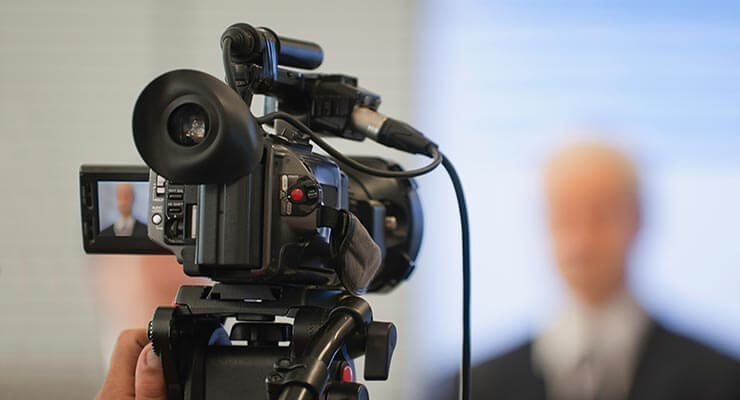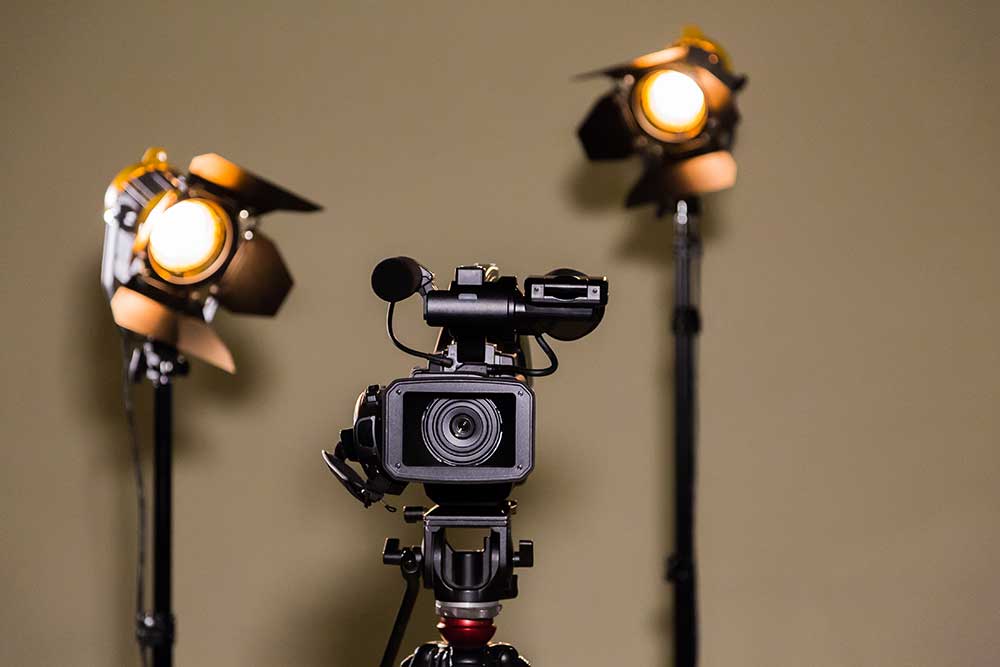The Duty of Lawful Videography in Depositions and Trials
Lawful videography has emerged as a vital device in both depositions and tests, providing a multifaceted method to recording witness testaments. As legal experts increasingly acknowledge its value, it prompts a much deeper evaluation of exactly how these aesthetic documents can influence juror perceptions and test results.

Relevance of Legal Videography
Lawful videography plays an essential duty in the documentation and presentation of depositions and trials. This specialized field integrates technical abilities with legal expertise to produce a reputable document of process that can dramatically influence case end results. The appearance of legal videography boosts the understanding of witness statement, allowing jurors and courts to observe not only the talked words yet additionally the behavior, feelings, and body language of the witnesses.
In enhancement, legal videography provides an objective account of events, minimizing the capacity for false impression that can occur with created records alone. This aesthetic paperwork functions as a critical device during trial presentations, facilitating a clearer and even more convincing narrative for both plaintiffs and defendants. Furthermore, the capability to replay video segments throughout court procedures allows legal groups to stress bottom lines, enhancing their disagreements efficiently.
The relevance of lawful videography prolongs beyond the court room; it likewise plays an important duty in protecting evidence for future recommendation, whether for appeals or more lawsuit. Its combination into the legal procedure is crucial for making sure a fair and accurate depiction of the facts, inevitably contributing to the search of justice.

Refine of Legal Videography
While recording the nuances of depositions and trials, the process of lawful videography involves several important actions that ensure premium, exact recordings. A professional legal videographer prepares by evaluating the situation materials and understanding the particular demands of the deposition or trial. This preparation includes familiarizing themselves with the participants and the context, which helps in catching important details.
On the day of the recording, the videographer establishes the required devices, which normally consists of high-definition video cameras, microphones, and appropriate lighting. Guaranteeing ideal angles and sound quality is essential, as it directly affects the performance of the recording. The videographer communicates with lawyers and individuals to develop procedures, guaranteeing that everyone understands the recording procedure.
Throughout the deposition or trial, the videographer meticulously records the process, paying attention to both spoken and non-verbal hints. This includes recording the demeanor and responses of witnesses and attorneys. After the session concludes, the videographer might modify the video footage for clarity and conformity with lawful standards, generating an end product that properly shows the procedures for future reference and usage in legal contexts.
Advantages in Depositions
The unification of videography in depositions provides numerous benefits that improve the overall procedure of gathering proof. One main benefit is the capability to capture witness testaments with visual and auditory integrity, offering an extra precise representation of the witness's temperament, tone, and body language. This multidimensional approach enables attorneys and juries to assess reliability extra successfully than conventional written records alone.
Additionally, videographed depositions function as an effective tool for maintaining statement. Needs to a witness ended up being unavailable for test, their recorded deposition can be played in court, making sure that their proof remains easily accessible and relevant. This element significantly minimizes the risk of shedding important details that could affect instance outcomes.

Last but not least, videography boosts the go to these guys total expertise of the deposition procedure, instilling self-confidence in customers relating to the thoroughness of their lawful depiction (legal videography). By leveraging innovation, attorneys can considerably improve the effectiveness of depositions
Impact on Tests
In several tests, the combination of videography can considerably influence the presentation of proof and the court's understanding. Legal videography records witness testaments and important evidence in a dynamic layout, permitting jurors to involve with published here the material on numerous degrees. This visual component boosts the narration element of a test, providing context and emotional vibration that standard text-based evidence may do not have.
Additionally, video clip recordings can work as effective devices for impeachment during cross-examination. When inconsistencies emerge in between a witness's prior statements and their courtroom testament, video evidence gives an unbiased reference that can guide jurors' viewpoints. This immediacy and quality can boost the reputation of a celebration's story while concurrently undermining opposing disagreements.

Future Trends in Legal Videography
As we look toward the future of legal videography, several emerging trends promise to reshape its role within the courtroom. One considerable pattern is the combination of expert system (AI) in video clip analysis and modifying. AI can improve the process of identifying essential minutes in recorded depositions, allowing attorneys to quickly access relevant web content, therefore improving effectiveness in case prep work.
In addition, the my sources increase of virtual reality (VIRTUAL REALITY) and increased truth (AR) technologies is expected to change exactly how jurors experience evidence. legal videography. By immersing jurors in a simulated environment, these modern technologies can supply a much more profound understanding of intricate situations, leading to even more educated deliberations
Furthermore, the enhancing need for remote depositions, sped up by the COVID-19 pandemic, will likely continue. Lawful videographers will require to adapt to new software program and systems to ensure top notch recordings in online setups.
Finally, the expanding emphasis on information safety will require stricter methods for storing and sharing video proof. As the legal landscape advances, legal videographers have to stay abreast of these fads to maintain their importance and efficiency in the judicial procedure.
Conclusion
In recap, legal videography offers an important function in the judicial procedure, enhancing the stability of depositions and tests. By capturing the subtleties of witness testimonies, this tool not just preserves crucial evidence however additionally aids in providing information efficiently to jurors. The relevance of visual documents in evaluating integrity and facilitating interrogation can not be overemphasized. As technology continues to advance, lawful videography is poised to additional change its duty within the legal landscape.